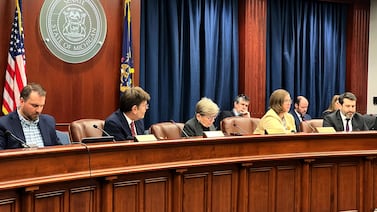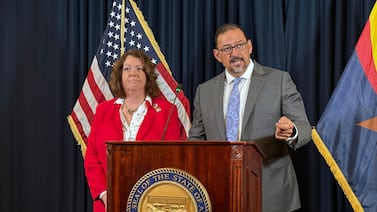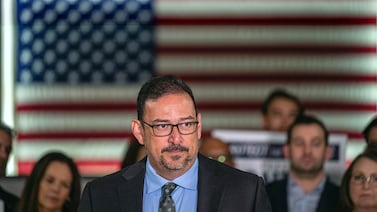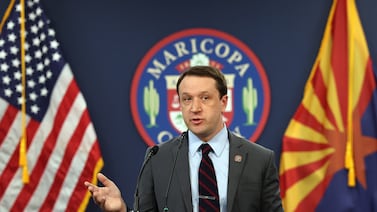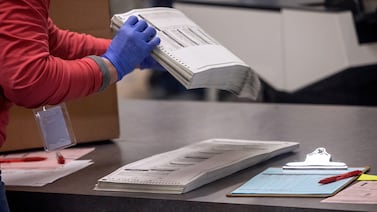2024 Election Certification
Probably not, says a constitutional law expert. But GOP tensions could create other problems.
The drama of 2020 was gone, replaced by specific questions about how elections work and a straightforward vote.
Cochise County Supervisor Peggy Judd was indicted for delaying certification in 2022. This time, a plea deal left her little choice.
By state law, Election Day totals must be submitted to the state within 24 hours after polls close. Hitting that deadline requires careful but quick work.
Secretary of State Adrian Fontes can’t threaten to exclude votes from a county that refuses to finalize results, a federal judge ruled, but he has other legal options.
ACLU says it’s ready to sue if the threat emerges again: ‘If you refuse to certify, you will be held responsible.’
The suit is a rare preemptive move to head off a crisis after the November election — like the kind that happened in 2020.
After ‘activist rulemaking’ in Georgia, experts are still confident officials can thwart local efforts to interfere with finalizing presidential results.
Would they be willing to do the same thing this year? We asked them.
Bipartisan legislation passed by the House sets stricter deadlines for resolving legal challenges and finalizing results.
Recount petitions may force courts to step in if the state can’t deliver on time.
How Arizona’s divided legislature united behind a solution that sets the primary for July 30 this year and changes how mail-in ballots are verified.
In wide-ranging lawsuit over the new Elections Procedures Manual, Republican lawmakers allege the secretary of state can’t make rules for counties on certifying their elections.
The state’s voting rules and new laws have created an unforgiving timeline for the 2024 presidential election. But there’s many ways to compress the schedule to make it work.
Election directors are meeting with Gov. Katie Hobbs and legislative leaders to press for a special session.


